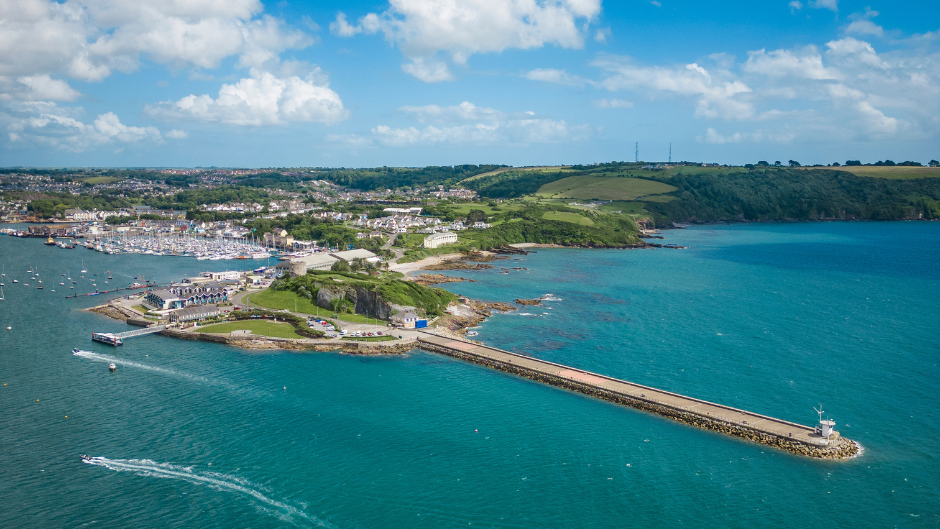Employer

The South West’s Green Revolution: How Engineering is Driving a Sustainable Future
December 2nd, 2025

Article by Dan Martin | November 17th, 2025
From Plymouth Freeport to Appledore Shipyard, the South West is driving the UK’s marine engineering future. Dan Martin explores the innovation, sustainability and skills shaping this vital regional sector.
From Plymouth Freeport to Appledore Shipyard, the South West is driving the UK’s marine engineering future. Dan Martin explores the innovation, sustainability and skills shaping this vital regional sector.
A Maritime Heritage Reimagined
The South West has always had salt in its veins. Shipbuilding, defence, and maritime trade have shaped the region’s identity for centuries. Today, that proud history is meeting a wave of innovation that is transforming the South West into one of the most important marine engineering centres in the UK.
From Plymouth to Appledore and Falmouth to Bristol, engineering firms, universities and research institutions are redefining what it means to work in the marine sector. It is a story of renewal, collaboration and ambition, rooted in both heritage and future vision.
As someone who works closely with engineering businesses across the region, I see this transformation every day. The marine sector is not just part of our past. It is one of the biggest drivers of our future.
Defence and shipbuilding: a foundation for innovation
At the heart of this story lies Babcock International’s Devonport Dockyard in Plymouth, one of Europe’s largest naval engineering facilities. The site is central to the Royal Navy’s operations, providing maintenance, refit and modernisation services for the UK’s surface fleet and submarines.
Beyond its strategic role, Devonport is also a centre of innovation. Babcock has been investing heavily in digital transformation, automation and sustainability within ship repair and refit processes. The result is a steady flow of opportunities for mechanical, electrical and systems engineers across multiple disciplines.
Further north, Appledore Shipyard in North Devon has seen a resurgence in recent years. Under new ownership, it is once again producing vessels for defence and commercial use. The yard’s revival has brought new skills, apprenticeships and confidence to the local community. Together, these two sites symbolise a broader renewal of British shipbuilding, with the South West at its heart.
Plymouth Freeport and the Marine Enterprise Zone
One of the most exciting recent developments is the creation of the Plymouth and South Devon Freeport, a hub designed to attract investment in advanced manufacturing, logistics and clean maritime technology.
By combining financial incentives with a strong research ecosystem, the Freeport is helping to accelerate innovation in areas such as autonomous vessels, decarbonised shipping and marine robotics. The initiative builds on the foundation laid by the Oceansgate Marine Enterprise Zone, which brings together private companies, the University of Plymouth and the Ministry of Defence to foster collaboration and commercialisation.
These initiatives are more than local success stories. They demonstrate how the South West is positioning itself as a testbed for next-generation maritime technologies that will support the UK’s global competitiveness.
Sustainability and marine autonomy
The global maritime industry is under increasing pressure to reduce its environmental footprint, and South West engineers are leading the response.
Plymouth Sound has been designated as the UK’s first National Marine Park, reflecting both its natural significance and its role as a living laboratory for sustainable marine innovation. Here, engineers and researchers are working on clean propulsion, electric and hydrogen-powered vessels, and smart port technologies.
The region is also home to some of the UK’s most advanced work in marine autonomy. Projects like MSubs and the Mayflower Autonomous Ship have shown what is possible when technology, vision and engineering expertise combine. These achievements are helping to establish the South West as a centre of excellence for maritime innovation on a global scale.
Collaboration and skills for the future
All of this growth depends on people. The marine sector needs engineers, technicians and project leaders who can adapt to rapid technological change while maintaining the high standards that maritime work demands.
Fortunately, the South West has a strong network of education and training institutions ready to meet that challenge. The University of Plymouth is recognised internationally for its maritime research and engineering courses. The University of Exeter and regional colleges such as City College Plymouth and Petroc provide vital technical training and pathways into the industry.
Employers across the sector are also investing in apprenticeships and upskilling initiatives, ensuring that experience and knowledge are passed on. These programmes are creating opportunities for young engineers to build meaningful, long-term careers without leaving the region.
Balancing heritage and innovation
What makes the South West’s marine sector so compelling is its ability to combine tradition with progress. Shipbuilding and defence engineering remain cornerstones of the local economy, but they now sit alongside cutting-edge research in autonomy, clean propulsion and advanced manufacturing.
It is this blend that gives the region its strength. The same harbours that launched wooden warships centuries ago are now supporting electric research vessels and autonomous platforms. The result is a living example of how heritage industries can evolve while staying true to their roots.
Looking ahead
The future of marine engineering in the South West looks dynamic and resilient. As global trade, defence strategy and environmental policy continue to evolve, the demand for sustainable, smart maritime solutions will only grow.
The region’s combination of deep technical expertise, innovative spirit and close-knit community makes it ideally placed to lead this new era. Whether it is building the next generation of naval vessels, developing clean energy systems, or advancing autonomous technologies, the South West will play a defining role.
Marine engineering has always been part of who we are. Today, it is also a blueprint for where we are going.
Article by Dan Martin
November 17th, 2025
Employer

December 2nd, 2025
Employer

October 16th, 2025
Career

November 16th, 2023
This site uses cookies to improve your user experience. Cookie Policy